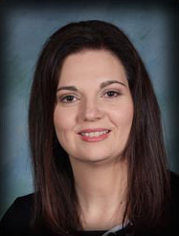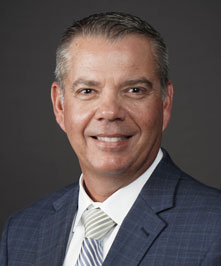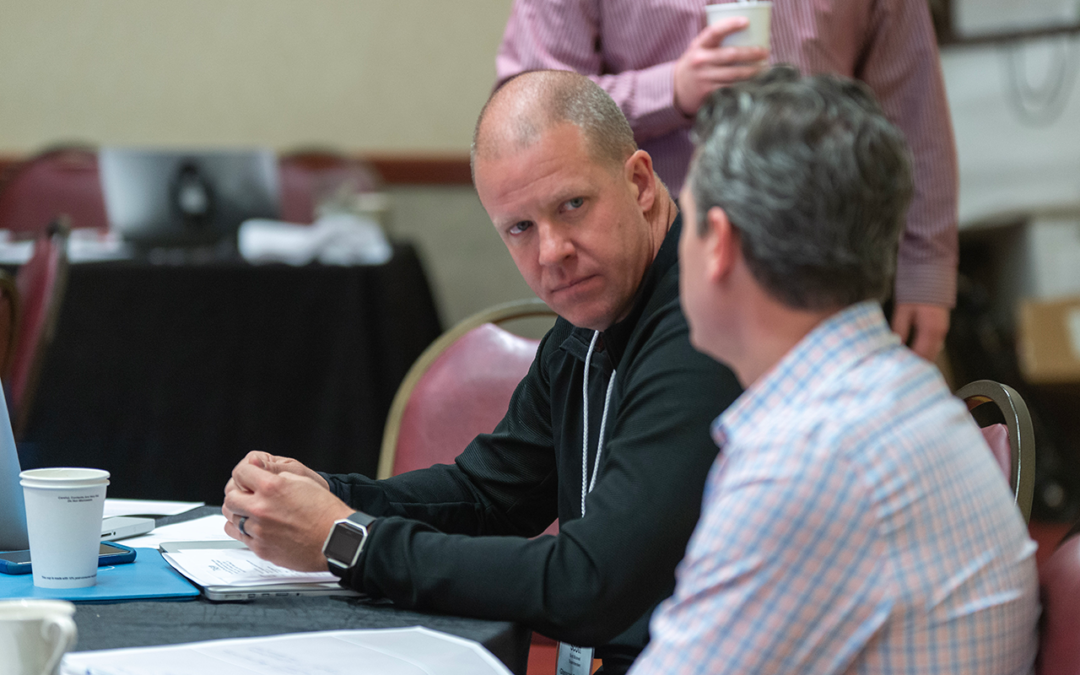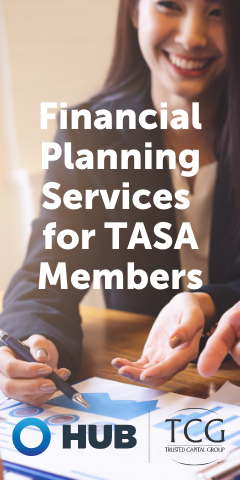Stepping into the superintendent’s office for the first time can be overwhelming. From juggling day-to-day operations to working with a new board or engaging with the community, the job keeps you on your toes. But serving at the top can also be lonely.

Tanya Larkin, Pampa ISD
“Even though you are always surrounded, you’re very isolated when it comes to having someone with a professional awareness of what your job entails,” says Tanya Larkin, superintendent in Pampa ISD.
The State Board for Educator Certification (SBEC) requires that all new superintendents go through a mentoring program, and to that end, TASA is revamping its superintendent mentoring program to go hand in hand with its First-Time Superintendents Academy, providing one-on-one support through those challenging first years at the helm.
As chair of TASA’s 2018-19 Professional Learning Committee, Kevin Worthy, Royse City ISD superintendent, began working on the program’s redesign three years ago. He says that through the newly designed mentoring program, TASA hopes to train mentors who are focused on creating intentional experiences for new superintendents.

Kevin Worthy, Royse City ISD
“It’s a very difficult transition becoming a first-year superintendent,” he says. “There are so many things that they just don’t know.”
Just before the TASA Midwinter Conference in January 2020, superintendent mentors underwent training designed to help them provide mentees necessary tools for professional growth, through learning experiences and relationship building.
Sweeny ISD Superintendent Dr. Tory Hill serves as the current chair of TASA’s Professional Learning Committee. He says that the redesigned model incorporates three main components.
First is a focus on relationships. Experienced and recently retired superintendents volunteer to serve as mentors, then go through training to learn how they can better create authentic opportunities and relationships with their mentees, allowing for more trust and more vulnerability to create the most helpful relationships possible.
The second component focuses on coaching, and is geared around building capacity for mentors to not only provide answers, but to ask meaningful questions to prompt deeper considerations from their mentees.
The third component centers around four practical modules necessary for all new superintendents: board dynamics, overall operations, strategic direction and culture, and community engagement.

Tory Hill, Sweeny ISD
“Our mentors will have frequent face-to-face or virtual meetings with their mentees,” Hill says. “We want those opportunities for collaboration to be as close to the work as possible, so that may mean walking the halls of a school together and discussing problems. It could mean observing a practice that a new superintendent is implementing and providing feedback.”
TASA’s Professional Learning Committee members have designed the mentoring program to evolve as it grows, welcoming feedback from new superintendents on how they could get the most out of the relationship. Over the past year, the group has asked participants in TASA’s First-Time Superintendents Academy what they need most and worked to design the mentoring program to meet those needs.
“We want to make sure we base the program on what the mentee needs,” Worthy says. “We want the mentee to have a voice. We want them to be able to help with decision-making.”
While the SBEC rule requires only one year of mentoring, it’s TASA’s goal that the redesign will help build mentor/mentee relationships that last much longer.
“One of the things I realized as a superintendent is that it was really my second year of work where I faced the greatest level of challenge,” Hill says. “So we’re hoping the mentoring will carry on to year two as well, to allow for more authentic conversations while the work is happening. Because in year one, you’re learning and listening, but in year two, you’re really beginning to put your ideas and strategic plan to work.”
Building strong two-way relationships is an essential goal of the mentoring program, so that mentees feel comfortable reaching out to their mentors, and can even turn around after a few years in the office and serve as mentors themselves, lending their revelations to newer superintendents. By aligning the program with the First-Time Superintendents Academy, the committee hopes to build personal connections with TASA, to introduce new superintendents to the association and all of the benefits it has to offer.
“We want each of our superintendents to understand that they really have to take time to focus on professional growth, from a personal standpoint and growth that would help move their district forward,” Worthy says. “I think it’s critical that new superintendents come into the job understanding that a growth mindset has to be in place when it comes to transformation, innovation and things that are critical for students to be successful in the future.”
Those involved in the program’s redesign have high hopes for what it can provide to new superintendents in the future. Chief among those hopes is building beneficial working relationships.
“My hope is that new superintendents will create professional networks where they have an on-point resource to help them think through their challenges, what I refer to as an innovation think tank,” Hill says. “The great way to measure the success of the program is going to be looking at how successful our new superintendents are and whether or not they are pushing education forward in Texas.”
Larkin agrees that while the superintendency comes with a lot of details that can be taught through conferences and trainings, learning the nuances of the job is best done from someone who’s experienced it firsthand.
“Connecting a new superintendent with a positive, visionary, experienced mentor is crucial for both the success of that person and the success of the students and staff that he or she serves in their district,” she says. “As educators, we are in the human capacity business. Having strong, professional and ethical mentors will ensure that public schools continue to thrive and meet the challenges of students in communities all over Texas.”
As TASA’s redesigned mentoring program kicks off in 2020, excitement is high for what this relationship building can mean for both new and veteran administrators in Texas.
“At the end of the day, we have to create an experience both for the first-year superintendent and the mentor that builds a strong relationship and creates a long-lasting friendship,” Worthy says.
“I’m extremely excited about the opportunity to serve on this committee as we design this new model,” Hill says. “I really feel that professional learning is the heart of what continues to drive schools forward.”
Learn more about the TASA superintendent mentoring program.
Written by TASA INSIGHT editorial director Dacia Rivers, this article was originally published in the winter 2019-20 issue of INSIGHT.


